-
Delivering on the Promise of Entrepreneurship by Thinking Beyond Limiting Economics Assumptions: An Extension of Lewis Et al.’s “A Promise Not (Yet) Fulfilled” Academy of Management Review (IF 19.3) Pub Date : 2025-06-03
Florence Villesèche, Stratos Ramoglou, Laura CostanzoAcademy of Management Review, Volume 0, Issue ja, -Not available-.
-
Diversity Incentives Can Increase Women’s Aspirations to Lead Academy of Management Journal (IF 9.5) Pub Date : 2025-06-03
Erika L. Kirgios, Edward H. ChangAcademy of Management Journal, Volume 0, Issue ja, -Not available-.
-
Corruption dynamics: Integrating structure, agency and institutional logics across contexts Int. J. Manag. Rev. (IF 7.5) Pub Date : 2025-05-31
Karl Z. Meyer, John M. Luiz, Johannes W. FedderkeAlthough the literature on corruption is extensive, it is also fragmented, with inconsistencies and inconclusive findings that limit theoretical and practical advancements. Scholars have called for multi‐factor, multi‐level frameworks that integrate macro, micro and longitudinal aspects to provide a more cohesive understanding of corruption's persistence and mitigation. This study addresses these calls
-
Strategy in the digitalization era Int. J. Manag. Rev. (IF 7.5) Pub Date : 2025-05-31
Marko Kohtamäki, Rodrigo Rabetino, Vinit Parida, Paavo RitalaEver since the rise of the Internet, digitalization has been increasingly shaping firms’ business processes and models. The rapid rise of digital technologies has perhaps even changed some of the fundamentals of strategy, including strategic decision‐making, cognition, discourse and practices. However, limited effort has been made to structure the strategy‐oriented academic discourse in the digitalization
-
The Moral Case Revisited: Moral Framing as a Double-Edged Sword for Motivating Majority Group Leaders to Support DEI Academy of Management Journal (IF 9.5) Pub Date : 2025-05-27
McKenzie C. PrestonAcademy of Management Journal, Volume 0, Issue ja, -Not available-.
-
The Strength of Showing Weakness: Organizational Supplication and Investor Reactions to Workforce Downsizing J. Manag. (IF 9.3) Pub Date : 2025-05-30
Matthias Brauer, Louis VandepoeleStrategy research usually assumes that displays of weakness are disadvantageous for firms. In this study, we challenge this assumption. We propose that deliberate displays of weakness can help firms preserve stakeholder approval when taking controversial decisions. To test this proposition, we examine the use and effectiveness of organizational supplication in the context of workforce downsizing. Building
-
Strategic governance of blockchain platforms: From centralized to open source control systems Long Range Plan. (IF 7.4) Pub Date : 2025-05-30
Juan Santalo, Igor FilatotchevThis perspective article focuses on blockchain platforms as new forms of organization and governance within the decision-making centralization/decentralization continuum. It aims to address the following research questions: How does the context of blockchain and community-based governance creates new theoretical challenges regarding the traditional centralization/decentralization debate in corporate
-
A Machine Learning Toolkit for Selecting Studies and Topics in Systematic Literature Reviews Organ. Res. Methods (IF 8.9) Pub Date : 2025-05-26
Andrea Simonetti, Michele Tumminello, Pasquale Massimo Picone, Anna MinàScholars conduct systematic literature reviews to summarize knowledge and identify gaps in understanding. Machine learning can assist researchers in carrying out these studies. This paper introduces a machine learning toolkit that employs Network Analysis and Natural Language Processing methods to extract textual features and categorize academic papers. The toolkit comprises two algorithms that enable
-
Parasites, Functionaries, and Their Relations: Responding to Commentaries on Institutional Parasites Academy of Management Review (IF 19.3) Pub Date : 2025-05-20
Jukka Rintamäki, Simon Parker, André SpicerAcademy of Management Review, Volume 0, Issue ja, -Not available-.
-
Using Coreference Resolution to Mitigate Measurement Error in Text Analysis Organ. Res. Methods (IF 8.9) Pub Date : 2025-05-21
Farhan Iqbal, Michael D. PfarrerContent analysis has enabled organizational scholars to study constructs and relationships that were previously unattainable at scale. One particular area of focus has been on sentiment analysis, which scholars have implemented to examine myriad relationships pertinent to organizational research. This article addresses certain limitations in sentiment analysis. More specifically, we bring attention
-
Enhancing Theorization Using Artificial Intelligence: Leveraging Large Language Models for Qualitative Analysis of Online Data Organ. Res. Methods (IF 8.9) Pub Date : 2025-05-21
Diana Garcia Quevedo, Anna Glaser, Caroline VerzatOnline data are constantly growing, providing a wide range of opportunities to explore social phenomena. Large Language Models (LLMs) capture the inherent structure, contextual meaning, and nuance of human language and are the base for state-of-the-art Natural Language Processing (NLP) algorithms. In this article, we describe a method to assist qualitative researchers in the theorization process by
-
Understanding I-Deals Through the Social Ledger Lens: The Role of Trust and Hindrance Networks Academy of Management Journal (IF 9.5) Pub Date : 2025-05-19
Farid Jahantab, Smriti Anand, Prajya R. Vidyarthi, Berrin ErdoganAcademy of Management Journal, Volume 0, Issue ja, -Not available-.
-
Sustainability Real Options Calif. Manag. Rev. (IF 6.3) Pub Date : 2025-05-15
Han SmitSummary Decision-making on sustainability investment faces two challenges. First, appraisal methods are based on a narrow view of shareholder value and require extensions to support decisions that involve valuable outcomes for society. Second, the consequences of climate change are uncertain. However, firms have real options to adapt, which helps them realize the energy transition. An extended net
-
Improving Human Sustainability at Work by Focusing on Cognitive Load of Task Performance J. Manag. (IF 9.3) Pub Date : 2025-05-14
Kayla S. Stajkovic, Alexander D. StajkovicMounting information processing demands in contemporary organizations spotlight the need to better understand how to maintain and improve performance without increasing cognitive load. Research in organizational behavior suggests that primed goals provide performance benefits similar to assigned goals but with little cost to attention. Yet, some research in social psychology suggests that any form
-
The Beauty Bias and Leader Emergence: A Theoretical Integration, Extension, and Meta-Analysis J. Manag. (IF 9.3) Pub Date : 2025-05-13
Stephen H. Courtright, Gary R. Thurgood, Huiyao Liao, Timothy J. Morgan, Jiexin WangLeader emergence is a critical organizational phenomenon, influenced by various individual attributes. One such attribute—often overlooked by scholars and practitioners—is physical attractiveness. This study provides a comprehensive meta-analysis of the beauty bias and its relationship to leader emergence. We first review implicit leadership and status generalization theories as the dominant frameworks
-
Leaving Necessity Entrepreneurship Behind: How Entrepreneurs Actualize Desirable Futures Academy of Management Review (IF 19.3) Pub Date : 2025-05-08
Chad D. Coffman, Griffin W. Cottle, Sanwar A. SunnyAcademy of Management Review, Volume 0, Issue ja, -Not available-.
-
Flowing with the Current and Making Waves: A Model of Personal Control and Institutional Migration Academy of Management Review (IF 19.3) Pub Date : 2025-05-08
Matthew Lee, Jennifer WhitsonAcademy of Management Review, Volume 0, Issue ja, -Not available-.
-
Emotional Signaling: How Helpers’ Emotional Expressions Affect Attributions of Motives, Relationship Quality, and Reciprocation Academy of Management Journal (IF 9.5) Pub Date : 2025-05-08
Stephen H. Lee, Michael D. JohnsonAcademy of Management Journal, Volume 0, Issue ja, -Not available-.
-
Meanings and values of the craft market: An integrated perspective through service‐dominant logic Int. J. Manag. Rev. (IF 7.5) Pub Date : 2025-05-07
Antea GambicortiIn an era of increasing digitalization, automation and fast production, craft has experienced a significant revival. Producers and consumers, by interacting at individual, dyadic and group levels, influence the craft market with positive and negative connotations. This generates a complex and dynamic environment, where multiple meanings and values intersect. To fully understand this environment, it
-
Short-Term Fulfillment: How Supervisors’ Motives for Abusive Behaviors Influence Need Satisfaction and Daily Outcomes J. Manag. (IF 9.3) Pub Date : 2025-05-06
Szu-Han (Joanna) Lin, Emily C. Poulton, Russell E. JohnsonExisting research assumes that supervisors invariably feel bad after engaging in abusive behaviors. We challenge this assumption by proposing that supervisors’ motives of abusive supervision shape their post-abuse experiences. Drawing on the social interactionist theory of aggression and theories of self-regulation, we suggest that instrumental (or goal-driven) abusive behaviors provide a temporary
-
Embracing duality in academic spin‐offs: A systematic review and agenda for future research Int. J. Manag. Rev. (IF 7.5) Pub Date : 2025-05-05
Davide Hahn, Giuseppe Criaco, Tommaso Minola, Daniel Pittino, Silvio VismaraAcademic spin‐offs (ASOs), a distinct form of hybrid venture, operate at the intersection of economic (business) and non‐economic (academic) logics. Although traditional literature often portrays these logics as inherently conflicting, emphasizing the trade‐offs ASOs must manage, recent empirical findings challenge this view, suggesting that integrating academic and business logics can be beneficial
-
Capturing Value From Investment Opportunities Under Product-Market Competition: When Do Internal Capital Markets Matter? J. Manag. (IF 9.3) Pub Date : 2025-05-04
Afonso Almeida Costa, Javier GimenoThe view that a business unit can better compete against product-market rivals if granted funding from its parent firm’s internal capital market (ICM) has lost traction within strategy, despite conflicting evidence. We develop a theory to explain when funding from a parent firm’s ICM should enable a business unit to more effectively capture value (i.e., profit) from its investment opportunities under
-
The Roles of Learning and Status Attainment in Successful Newcomer Socialization: Random Assignments to Complex Projects and Early Career Outcomes Academy of Management Journal (IF 9.5) Pub Date : 2025-05-02
Shihan Li, David Krackhardt, Nynke M. D. NiezinkAcademy of Management Journal, Volume 0, Issue ja, -Not available-.
-
Navigating Mental Illness at Work Using Disengagement and Engagement Pathways Academy of Management Journal (IF 9.5) Pub Date : 2025-05-02
Emily H. Rosado-Solomon, Sherry M. B. Thatcher, Sam D. StrizverAcademy of Management Journal, Volume 0, Issue ja, -Not available-.
-
Patent citations and acquisition premiums: A screeningperspective Long Range Plan. (IF 7.4) Pub Date : 2025-05-03
Manjot S. Bhussar, Brian C. Fox, Sergio GroveWhile extant acquisition literature explores how intentional signaling between the acquiring and target firms can influence acquisition outcomes, we examine how unintentional information revealed through prior actions taken long before an acquisition is contemplated – specifically patent citation patterns between the firms – influences acquisition outcomes. We argue that targets can screen patent citation
-
Uprooting Loneliness: A Theory of Continuity-Breaking Self-Narrative Change Academy of Management Journal (IF 9.5) Pub Date : 2025-04-30
Jennifer Louise Petriglieri, Elizabeth SheprowAcademy of Management Journal, Volume 0, Issue ja, -Not available-.
-
Sustaining authenticity while enabling adaptation: Discursively navigating strategy-identity tensions over time Long Range Plan. (IF 7.4) Pub Date : 2025-05-01
Bart De Keyser, Ann LangleyOver time, environmental pressures may push organizations to engage in strategic actions that diverge from their foundational identity claims. In such circumstances, organizations experience tensions between pressures for authenticity on the one hand, and pressures for adaptiveness on the other. Such pressures are likely to be of particular importance for organizations that have historically laid claim
-
Insufficient Effort Responding in Management Research: A Critical Review and Future Directions J. Manag. (IF 9.3) Pub Date : 2025-04-30
Jason L. Huang, Zhonghao Wang, Ran Huang, Dongyuan Wu, Huijie ShiInsufficient effort responding (IER) presents a significant challenge in management research, potentially leading to flawed inferences. This review critically examines IER practices in 17 leading management journals from 2012 to 2023, highlighting inconsistencies in screening methods, cutoffs, and reporting. We find that IER screening is more prevalent in studies using online paid samples, experimental
-
Behind Emerging Market Firms’ Internationalization, Diversification, and Innovation: A Geographic Relational Approach J. Manag. (IF 9.3) Pub Date : 2025-04-28
Xiaoming He, Di Fan, Xinli Huang, Mike W. PengThe internationalization of emerging market firms (EMFs) has attracted substantial research attention. Yet, how EMFs engage in diversification and innovation during internationalization remains underexplored. Drawing insights from a geographic relational perspective, we perform a fuzzy-set qualitative comparative analysis (fsQCA) on a sample of EMFs. Our findings suggest that EMFs can choose from multiple
-
International knowledge transfer through international entrepreneurship: A systematic review and research agenda Int. J. Manag. Rev. (IF 7.5) Pub Date : 2025-04-26
Mingchu Wang, Yingqi Wei, Catherine L. Wang, Gideon AzumahWe conducted a systematic literature review on international knowledge transfer (IKT) via international entrepreneurship (IE), synthesising fragmented research that employs various conceptualisations, methodological approaches and theoretical lenses. Based on a review of 40 articles, we inductively developed an analytical framework comprising four key elements: international knowledge, international
-
Major Program Value Creation and Capture: The S 3 Framework for Mitigating Risk Propagation to Maximize Opportunities Calif. Manag. Rev. (IF 6.3) Pub Date : 2025-04-26
Daniel Erian Armanios, Marc J. Ventresca, Maher K. Itani, Malcolm McCullochLarge-scale, mission-critical initiatives are increasingly deployed through major programs or assemblies of projects that span and situate across sectors, industries, and/or geographies. To better track risk propagation within major programs, this article reconceptualizes them as temporary ecosystems or interlinked organizations whose project-based interdependencies last until the program’s conclusion
-
Employee Mobility Barriers: An Integrative Review Across Careers, Human Resources, and Strategic Management Research J. Manag. (IF 9.3) Pub Date : 2025-04-25
Lauren E. Aydinliyim, Deepak SomayaThe ability of employees to move between firms of their own volition is a defining characteristic that distinguishes human capital from other resources. This review bridges previously isolated research communities by synthesizing knowledge on “employee mobility barriers”—mechanisms that restrict employee movement and help firms maintain human capital-based competitive advantages. We introduce a typology
-
A review of cognitive biases in strategic decision making Long Range Plan. (IF 7.4) Pub Date : 2025-04-25
Devaki Rau, Philip BromileyThis paper presents an integrative review of empirical research (2000–2023) on cognitive biases that affect decision makers in established organizations as they make strategic decisions. We examine patterns in the measures, antecedents, and outcomes of two broad categories of biases: systematic biases that operate similarly across individuals (e.g., overconfidence, escalation of commitment, loss aversion
-
Crowdfunding: A Theory-Centered Review and Roadmap of the Multidisciplinary Literature J. Manag. (IF 9.3) Pub Date : 2025-04-24
Stephanie B. Escudero, Aaron H. Anglin, Thomas H. Allison, Marcus T. WolfeCrowdfunding is a relatively nascent, rapidly growing phenomenon whereby individuals or ventures pursue funding from a potentially large number of backers via the Internet. This rapidly emerging literature invites a variety of conceptual lenses and offers significant potential to advance theoretical understanding of important organizational activities, such as how entrepreneurs and organizations are
-
TEMPORARY REMOVAL: Does expressing uncertainty help or harm leaders? Leadersh. Q. (IF 9.1) Pub Date : 2025-04-24
Shilaan Alzahawi, Francis J. FlynnThe publisher regrets that this article has been temporarily removed. A replacement will appear as soon as possible in which the reason for the removal of the article will be specified, or the article will be reinstated.
-
Dynamic Strategifying: How do Chief Purpose Officers make purpose strategic and strategy purposeful? Long Range Plan. (IF 7.4) Pub Date : 2025-04-22
Nicole Steller, Albena BjörckThe increasing institutionalization of corporate purpose by appointing Chief Purpose Officers (CPOs) signifies a pivotal transition in corporate priorities, emphasizing the imperative of purpose-driven management. The literature highlights the crucial relationship between strategy and purpose, where strategy embeds purpose within organizational frameworks and purpose guides strategic decision-making
-
Consistent Human Resource Practices Calif. Manag. Rev. (IF 6.3) Pub Date : 2025-04-21
James N. Baron, David M. Kreps -
Putting Out Burning Fires: Investigating the Urgency Triggered By Prohibitive Voice J. Manag. (IF 9.3) Pub Date : 2025-04-20
Alexander C. Romney, Daniel W. Newton, Michael D. UlrichOrganizations rely on employees to report problems that hinder organizational effectiveness and on supervisors to resolve those problems. Although prohibitive voice is generally thought to help organizations avoid costly and tragic outcomes, the voice literature has also demonstrated that supervisors respond more negatively to prohibitive voice than promotive voice. This tension motivates our inquiry
-
Moving in Tandem or Failing Altogether: Managing Resource Configurations for Responsible Practice Development J. Manag. (IF 9.3) Pub Date : 2025-04-20
Frank WijenWhy do so many responsible business initiatives fail? While earlier studies have stressed the lack of commitment, we know little about the ways in which prosocial firms seek to secure the requisite resources to accomplish such practices. This study investigates how the management of multiple resource dependencies impacts the (non)accomplishment of a firm’s aspired responsible practices. A granular
-
Aligning the Stars: How Technology Committees and Relevant Resources Drive Firm Innovation J. Manag. (IF 9.3) Pub Date : 2025-04-20
Brent B. Clark, Karen A. Schnatterly, Felipe Calvano, John P. Berns, Cynthia E. Devers, K. Ashley GangloffWhile many boards adopt technology committees to support firm innovation, the impact of such committees is largely unexplored. We draw on agency and resource dependence theories to suggest that technology committees can improve firm innovation (patenting and new product introductions). We further hypothesize that relevant committee expertise (technology and executive expertise) enhances the effectiveness
-
Human Resource Practices and Employee Trust: A Systematic Review With a Guiding Framework J. Manag. (IF 9.3) Pub Date : 2025-04-20
Dejun Tony Kong, Nicole A. Gillespie, Kurt T. DirksHuman resource (HR) practices hold great promise in fostering employee trust, and insights into how HR practices relate to employee trust are critical to evidence-informed management. However, extant research findings are fragmented and dispersed across disciplines and use a confusing plethora of concepts, limiting insights. To address these problems, we conducted a systematic review to offer a more
-
How do multinational enterprises respond to geopolitics? A review and research agenda Int. J. Manag. Rev. (IF 7.5) Pub Date : 2025-04-18
Stephanie Tonn Goulart Moura, Thomas C. Lawton, Damian TobinInternational business research emphasizes the importance of geopolitics to multinational enterprise (MNE) strategic decision‐making. Yet, insights and evidence are dispersed across levels of analysis and disciplinary perspectives, making it difficult to determine how exactly MNEs respond to geopolitics. Leveraging a sample of 97 papers from journals in strategy, international business and management
-
Time to Face the Music: A Commentary on Lee, Busenbark, Withers, and Zajac’s “How Music Theory Can Inform Competitive Dynamics” Academy of Management Review (IF 19.3) Pub Date : 2025-04-16
Theodore L. Waldron, Gideon D. Markman, Jeffery S. McMullen, Peter GianiodisAcademy of Management Review, Volume 0, Issue ja, -Not available-.
-
It’s Going to be Fun: Toward a Multilevel, Multidisciplinary, and Multi-Contextual Dialogue on CEO Humor Academy of Management Review (IF 19.3) Pub Date : 2025-04-16
Andreas König, Cecily D. Cooper, Nathan J. Hiller, Benno Stöcklein, Dominik BongAcademy of Management Review, Volume 0, Issue ja, -Not available-.
-
The Problem With “Multiple Hurdle” Reviewing J. Manag. (IF 9.3) Pub Date : 2025-04-17
José M. CortinaWaiting to evaluate one section of a paper (e.g., the Methods) until you have decided whether another section (e.g., the front end) passes muster is analogous to “multiple hurdle” systems in personnel selection. This usually creates a suboptimal weighting scheme in which the part of the system that represents the first hurdle is overvalued. I explain why “multiple hurdle” reviewing is counterproductive
-
2024 Presidential Address: Transforming Lives Through Scholarship and Community: The Power of the Academy of Management Academy of Management Review (IF 19.3) Pub Date : 2025-04-15
Sharon AlvarezAcademy of Management Review, Volume 50, Issue 2, Page 189-192, April 2025.
-
From a Portfolio of Journals to a System of Knowledge Production Academy of Management Review (IF 19.3) Pub Date : 2025-04-15
Matthew A. Cronin, Benjamin Martell Galvin, Elizabeth George, Marc Gruber, Dirk Lindebaum, Gideon D. Markman, C. Chet Miller, Elizabeth L. Rose, Sherry M. B. Thatcher, Geoffrey T. WoodAcademy of Management Review, Volume 50, Issue 2, Page 181-188, April 2025.
-
When Work Becomes Home and Home Becomes Work Calif. Manag. Rev. (IF 6.3) Pub Date : 2025-04-14
Arlie Russell Hochschild -
Ownership Matters: How Family Control Affects the Value of Board Chair Types After CEO Successions J. Manag. (IF 9.3) Pub Date : 2025-04-12
Christine Scheef, Thomas ZellwegerThis study examines the performance consequences of Chief Executive Officer (CEO) successions, focusing on the types of board chairs and firm ownership structures. While CEO successions can bring adaptation benefits and performance gains through strategic realignment, they can also cause disruption costs and performance losses by disturbing stakeholder relationships. We examine how the presence of
-
Escaping the Governance Trap: Insights from New Infrastructure Development “Megaprojects” Calif. Manag. Rev. (IF 6.3) Pub Date : 2025-04-12
Nuno Gil, Sara BeckmanSummary Mega infrastructure projects in liberal democracies often encounter significant cost overruns and delays. These challenges arise from tensions between mandated stakeholder engagement and shareholder-focused decision making. Legal frameworks require broad stakeholder involvement, yet investors prioritize cost efficiency, frequently omitting collaboration expenses from initial budgets. This misalignment
-
Knowledge-Based Assets in Business Groups: A Dynamic Capabilities View of Complementarity and Rents J. Manag. (IF 9.3) Pub Date : 2025-04-10
Murod Aliyev, Jeoung Yul LeeWe extend the business group (BG) literature by combining the knowledge-based perspective and the dynamic capabilities view to explain the benefits of group affiliation. In the BG context, group affiliates can use not only their own firm-level knowledge-based assets (KBAs), but also group-level KBAs. While prior research examines the efficiencies of BG affiliation by comparing BG affiliates to non-affiliated
-
A Brave New World of Human Resources Research: Navigating Perils and Identifying Grand Challenges of the GenAI Revolution J. Manag. (IF 9.3) Pub Date : 2025-04-10
Anthony J. Nyberg, Deidra J. Schleicher, Bradford S. Bell, Corine Boon, Peter Cappelli, David G. Collings, Joseph E. Dalle Molle, Stefan Feuerriegel, Barry Gerhart, Yoojin Jeong, M. Audrey Korsgaard, Dana Minbaeva, Robert E. Ployhart, Prasanna Tambe, Ingo Weller, Patrick M. Wright, Valery YakubovichThis paper reviews the transformative role of Generative Artificial Intelligence (GenAI) in Human Resource (HR) management, from a practice perspective, highlighting both opportunities and challenges and laying out a use-inspired future research agenda. This scoping review is grounded in insights from a unique Summit held in Spring 2024, which brought together HR academic scholars with dozens of Fortune
-
Information Exchange in Negotiations: Trust Level, Trust Radius, and Harmony Concern in East Asia versus West Academy of Management Journal (IF 9.5) Pub Date : 2025-04-08
Jingjing Yao, Han Li, Zhi-Xue Zhang, Jeanne M. BrettAcademy of Management Journal, Volume 0, Issue ja, -Not available-.
-
Making a Theoretical Contribution with Qualitative Research Academy of Management Journal (IF 9.5) Pub Date : 2025-04-08
Elizabeth Rouse, Juliane Reinecke, Davide Ravasi, Ann Langley, Matthew Grimes, Marc GruberAcademy of Management Journal, Volume 68, Issue 2, Page 257-266, April 2025.
-
Toward a New Theory of Experimental Strategy: A Response to Clark and Hunt’s “The Challenge and Opportunity of a Quantum Mechanics Metaphor in Organization and Management Research” Academy of Management Review (IF 19.3) Pub Date : 2025-04-07
Orie Shelef, Robert Wuebker, Jay BarneyAcademy of Management Review, Volume 0, Issue ja, -Not available-.
-
Bridging Institutional Theory and Social and Environmental Efforts in Management: A Review and Research Agenda J. Manag. (IF 9.3) Pub Date : 2025-04-08
Barbara Galleli, Lucas AmaralThis review examines the integration of institutional theory with social and environmental efforts in management (i.e., regarding sustainability, corporate social responsibility, and environmental, social, and governance objectives). By analyzing 720 studies published between 1997 and 2023, we develop a multi-level model that maps the antecedents of different actors (e.g., industries, organizations
-
Sourcing smart through project manager structures: The role of managerial direction multiplicity in Korean popular music industry Long Range Plan. (IF 7.4) Pub Date : 2025-04-07
Hyundo ChoiInternal development project organizations are likely to have a pre-defined internal goal to optimize the use of internal resources while joint development project organizations tend to have a flexible goal to take advantage of diverse external resources. In this situation, the managerial direction multiplicity of project managers (i.e., convergent or multi-faceted directions) reflected in their organizational
-
Not Just Hearsay and Rumor: How Managers (Actually) Perceive the Credibility of Secondhand Accounts of Employee Voice Academy of Management Journal (IF 9.5) Pub Date : 2025-04-02
Ethan R. Burris, Taeya M. Howell, Stephen R. Stubben, Kyle T. WelchAcademy of Management Journal, Volume 0, Issue ja, -Not available-.
-
Do the People Make the Place? A 40-Year Review of Research on ASA Theory J. Manag. (IF 9.3) Pub Date : 2025-04-03
Chad H. Van Iddekinge, Jake T. Harrison, Rong Su, Robert E. PloyhartAttraction-selection-attrition (ASA) theory proposes that “the people make the place” and has served as a foundation for many areas of organizational research. In this review, we take stock of the ASA literature to identify what we know and what we need to know about ASA processes and their effects on organizations. Based on a review of over 6,000 articles that cited ASA, we identified 321 studies
-
Organizational-Level Training and Performance: A Meta-Analytic Investigation J. Manag. (IF 9.3) Pub Date : 2025-04-03
Joonyoung Kim, Huikun Chang, Bradford S. BellWhile extensive research has examined the relationship between human resource management systems and organizational performance, the impact of organizational-level training—defined as the quantity and quality of training that an organization provides to its employees—remains less understood. In this article, we conducted a meta-analysis of the relationship between organizational-level training and


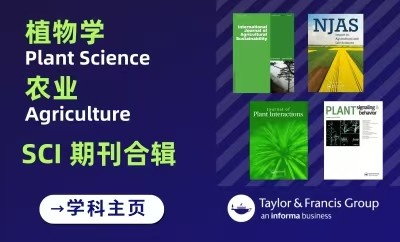












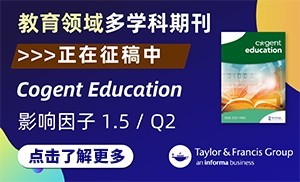
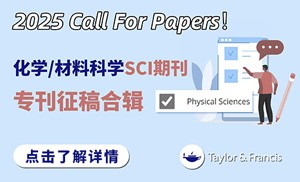


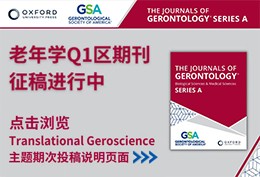


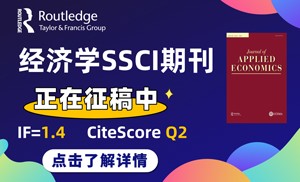




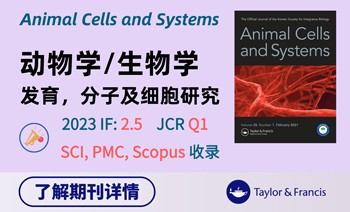


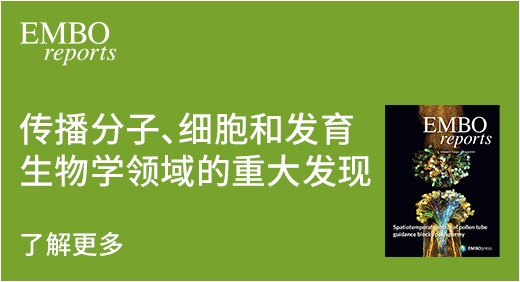
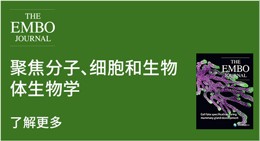





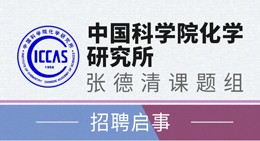


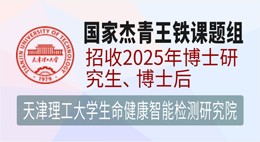



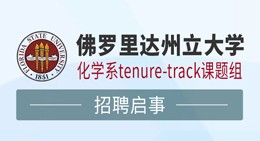
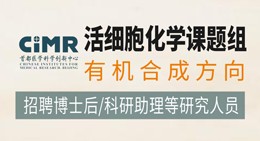




 京公网安备 11010802027423号
京公网安备 11010802027423号